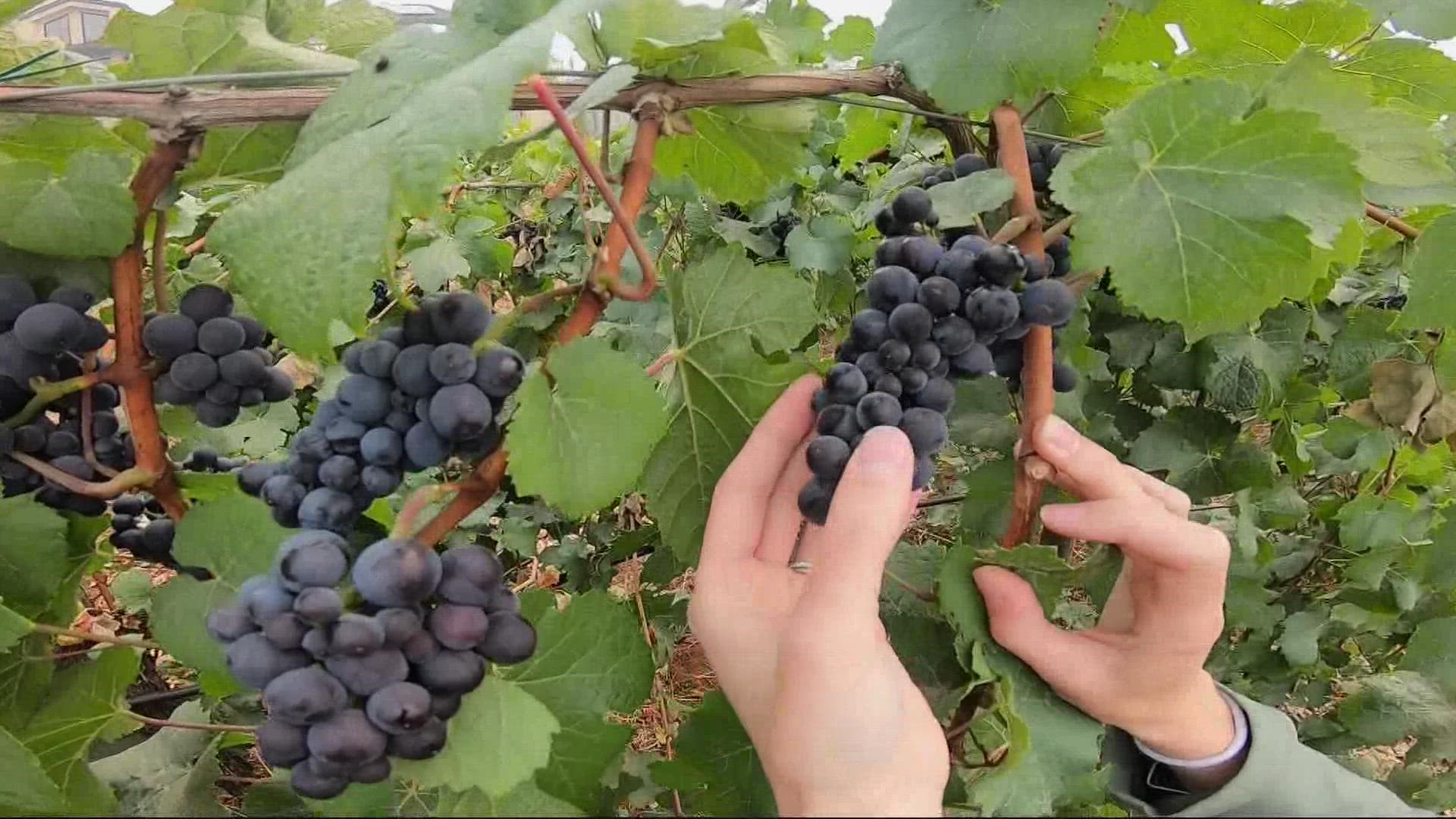PORTLAND, Ore. — Researchers at Oregon State University are coming up with innovative ways to keep the smoke out of the grapes and therefore out of our wines.
Scientists say as our climate warms we will not only see more, but also bigger wildfires and the smoke from those fires will travel longer distances. That does not bode well for the country's multi-billion dollar wine industry.
It is a concern for winegrowers around the nation, but especially in the west.
"Certainly things are changing with the climate crisis," said Christine Clair, winery director at Willamette Valley Vineyards.
For years, the winery has been working on ways to protect its grapes from wildfire smoke.
"If there is smoke in the valley for a prolonged period of time during the growing season, it can impart compounds into the skins of the grapes which can contribute to off flavors and aromas in the wines," Clair said.
The grape and wine industry contributes more than $200 billion to the U.S. economy. It's why Oregon State University Enologist Elizabeth Tomasino just received a federal grant to find ways to protect the wine industry from wildfire smoke.
One way is to develop a smoke shield of sorts.
"We're looking at creating a food grade coating that can be applied to the grapes in the field that is a barrier so the smoke isn't taken up into the grapes," she said.
Tomasino and a team of researcher are also looking at ways to remove the smoke taste and smell during the wine making process. It's something that is done now but not very successfully.
"We're working with some people to see if there are enzymes that could degrade those compounds into something again food grade but doesn't have smell or taste to it," she said.
Last fall, Tomasino and a team of researchers processed hundreds of grape and wine samples from Oregon growers to analyze the types and levels of smoke compounds in them.
They know smoke will be a big problem in the future, but they're confident their research will help save the grapes and the wineries that grow them.
"Everything the industry is looking for is achievable," said Tomasino. "It's just going to take a little bit of time."

